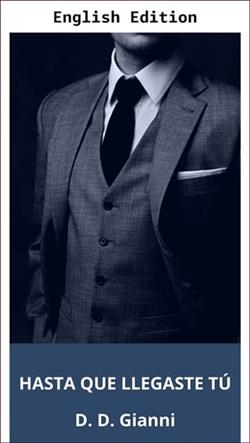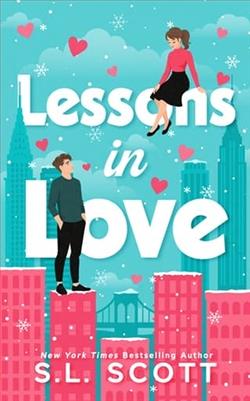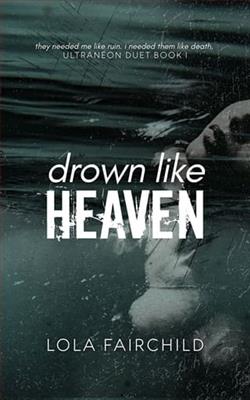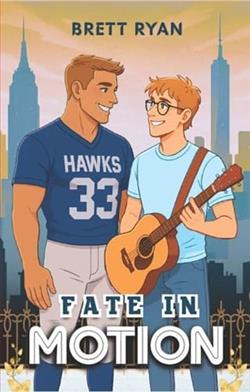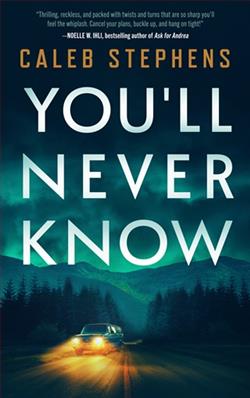Page 20 of Bolt To Me
She smiled through tears and kissed him, deeply, with a salt-slicked fullness, full of fear and relief, and the desperate kind of love that survives catastrophe. “I love you, too,” she whispered into his mouth. “You stubborn, reckless, beautiful idiot.”
Outside, the sky was still dark. Rain still fell. But inside, wrapped around each other, battered but alive, they were no longer lost. They were found.
And even as the storm raged on the horizon, its worst behind them, something quieter and stronger took its place, a love built not in perfection, but in survival. And in choosing each other again, even after the walls came down.
After the Storm
The light after a storm is never normal. It isn’t soft, golden, or easy. It’s stark. Raw. The kind of light that exposes everything: what’s broken, what’s salvageable, and what’s gone for good. That was how Willow Creek looked now, in the gray-blue aftermath of wind and fury. The sky was bruised with the last remains of the front, clouds dragging low like they, too, had grown weary.
In the early morning chill, the day after the tornado hit Willow Creek, the streets felt like a painting half-wiped away. Once-proud oaks lay torn and tangled across lawns, their roots jutting up like bones. Traffic lights hung crooked over intersections that had once been sleepy and slow. The Bluebonnet Market, the heart of the square, stood stripped of its sign, its windows boarded and gaping like missing eyes. The steeple at First Baptist had collapsed in on itself, its white wood shattered across the gravel lot like splinters from heaven.
Carli stood at the edge of the square in borrowed boots, mud climbing halfway up her jeans, her hoodie smeared with dust and sweat. Her gloves were already worn thin at the fingertips, and her palms ached from hours of work. She pushed her tangled hair off her face and squinted at the street she’d driven down a thousand times, trying and failing to find something familiar.
“This doesn’t even look like home,” she murmured, the words slipping out before she could stop them, ragged and hoarse.
Beside her, Cory didn’t speak at first. His presence alone was grounding, solid, even though it was covered in grime and rain. His arm brushed hers as he adjusted the straps on the tool belt slung around his hips. His eyes, like the storm-dark sky, studied the destruction not with despair, but with a fierce kind of determination.
“It will,” he said, voice low. “We’ll rebuild it.”
And they did.
The town came alive not in comfort but in crisis. One by one, like stubborn wildflowers after a freeze, people emerged from their homes, trucks, and shelters and started picking up the pieces. The sharp scent of sawdust and wet earth filled the air, mingled with the distant wail of a chainsaw and the staccato beat of hammers on plywood. The sun, pale and reluctant, broke through the clouds just enough to cast long, warped shadows across the wreckage.
Carli joined the flow without thinking, falling into rhythm beside Cory, Jackson, and Savannah. Jackson brought Carli’s brother Luke, his chainsaw, and his dry humor, throwing in commentary between tree limbs and collapsed sheds, while Luke tossed cut wood chunks into a pile like some contestant at a strong man contest. Savannah had casseroles and checklists, a clipboard tucked under one arm, and a stain on her shirt fromstirring something too fast. Josie showed up in neon yellow rain boots and a ball cap, barking orders like she’d been born to run emergency operations. She brought coffee strong enough to revive the dead, along with a tray of muffins no one had the heart to question the origin of.
Old Man Deacon arrived with his rusted tractor and enough backseat wisdom to start a podcast, muttering about the tornado of ’87 like it had been last week. He offered help and endless commentary from the back of the tractor as he pulled fallen trees out of the way, and somehow, that felt like comfort, too.
They cut branches. Boarded windows. Nailed tarps into place. Cory, Luke, and Jackson worked like machines, lifting debris and hoisting beams like their bodies had forgotten how to slow down. Carli lost count of the number of wheelbarrows she hauled, the amount of sweat that soaked into her clothes. But none of it mattered. The ache in her muscles felt good, earned, right. It silenced the lingering echoes of fear still lodged deep in her bones.
Somewhere between hauling a downed shutter and handing out peanut butter sandwiches from the back of Jackson’s truck, Carli started to feel the shift. The town, once so quick to judge and whisper, now turned their eyes on her with something else entirely. She saw it in the way Mrs. Campbell handed her a roll of duct tape with a nod. In the way the teenage stock boy from the hardware store offered to carry buckets of nails, as if she were his captain. In the way even the older women, the ones who’d once side-eyed her in church, now stopped to ask if she needed water or gloves.
They saw her differently now, not as the girl who left a man at the altar, or the woman who scandalously shacked up with Cory Hayes. They saw her knee-deep in rubble, hair plastered to her cheeks, dirt streaking her clothes, passing outbottled water with cracked hands and a tired smile. They saw someone who stayed. Someone who worked. Someone who helped rebuild.
And they saw Cory beside her. Mud-slick and tireless, teasing Jackson mid-lift and offering Savannah tools before she asked. He moved with ease through chaos, grounding people, joking with kids, steadying ladders, and stopping to check on Josie as if it were second nature. He didn’t posture or puff up his chest. He simply worked.
And he kept looking at her.
When she passed him a hammer, when he held the end of a board she was nailing down, when she laughed at something Jackson or Luke said, his eyes always found her. Not possessive, not proud. Just full. Like, he still couldn’t believe she was there.
They weren’t a headline anymore. They were a team.
Around midday, the sound of a luxury engine broke through the rattle and hum of cleanup. A silver Mercedes rolled slowly down Main Street, just fast enough to be noticed but too fast to stop. The windows were tinted. But Carli saw him in the passenger seat, Thomas Whitmore the Third, pressed and polished, mouth a tight line. His mother drove, sunglasses massive, hands clenched at ten and two.
They didn’t roll down the windows. Didn’t pause to offer help. They just coasted past the volunteers, the damage, the sweat. Like the storm, and everyone in it, were beneath them. The contrast couldn’t have been sharper.
Carli was standing on the sidewalk, passing out cold drinks to a circle of dusty kids and retired ladies sweeping glass into piles. Her hoodie sleeves were rolled up, cheeks flushed from sun and work, shoulders stiff but proud. Cory was across the square, lifting splintered boards into the back of Jackson’s truck, his shirt soaked through, dirt streaked up his arms.
Someone behind her said it softly, but not softly enough. “Thomas didn’t lift a finger during cleanup.”
Another voice, louder. “Carli’s out here sweating. That says more than anything.” She tried not to react. But her throat tightened.
Cory looked up at her from across the lot, one hand shielding his eyes from the sun. When their gazes met, something inside her steadied. The world had shifted, and this connection, this pull between them, had only gotten stronger.
By the time the sun began to drop behind the haze of clouds, painting the sky in streaks of fire and ash, the town looked, if not whole, at least held. Boards were nailed down. Tarps fluttered in the wind. Smoke from makeshift grills curled up into the air as neighbors passed around foil-wrapped sandwiches and lukewarm lemonade.
Carli leaned against the tailgate of Jackson’s truck, sipping from a bottle of water, her entire body humming with exhaustion. Savannah nudged her gently, smiling.
“You know,” she said, “I think you might be winning the town over.”








